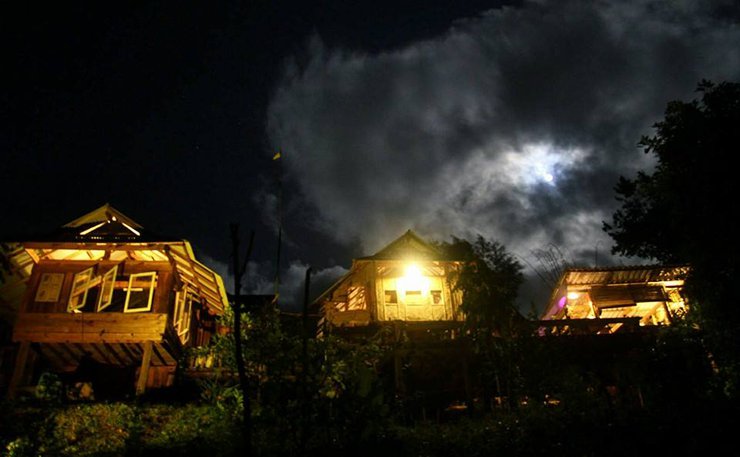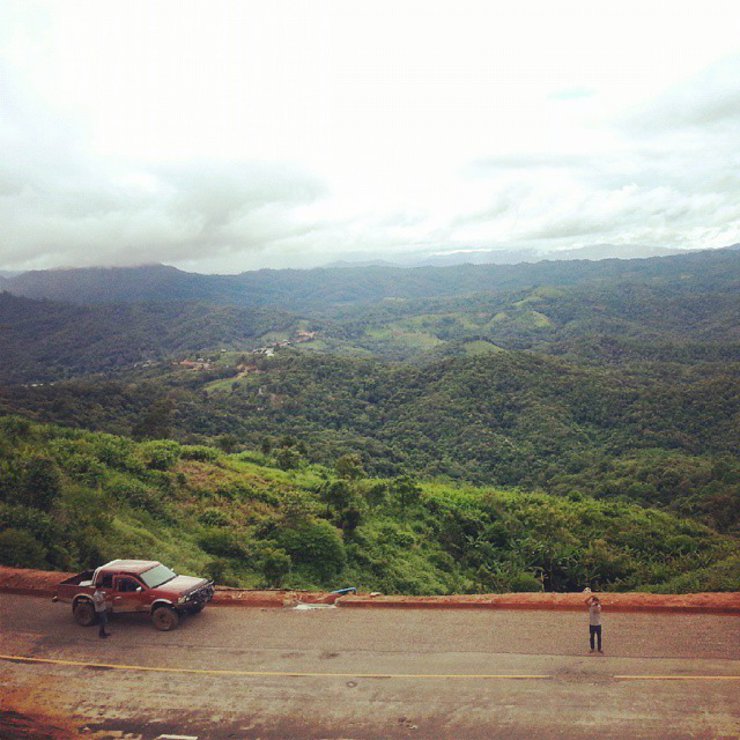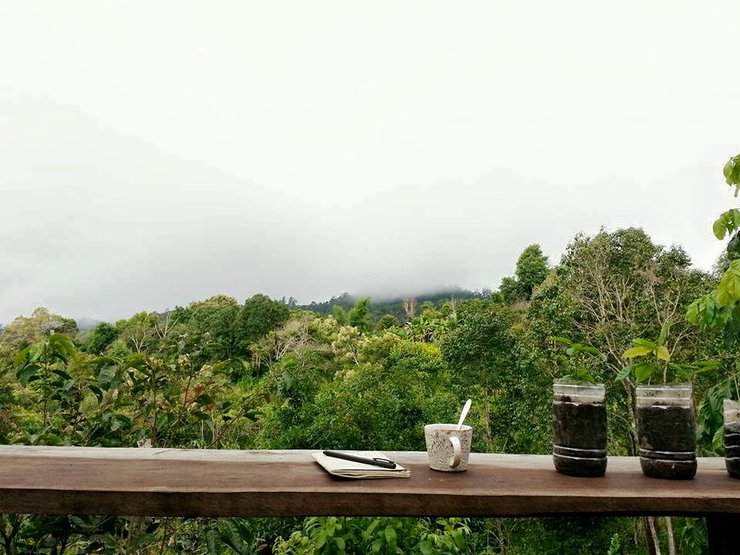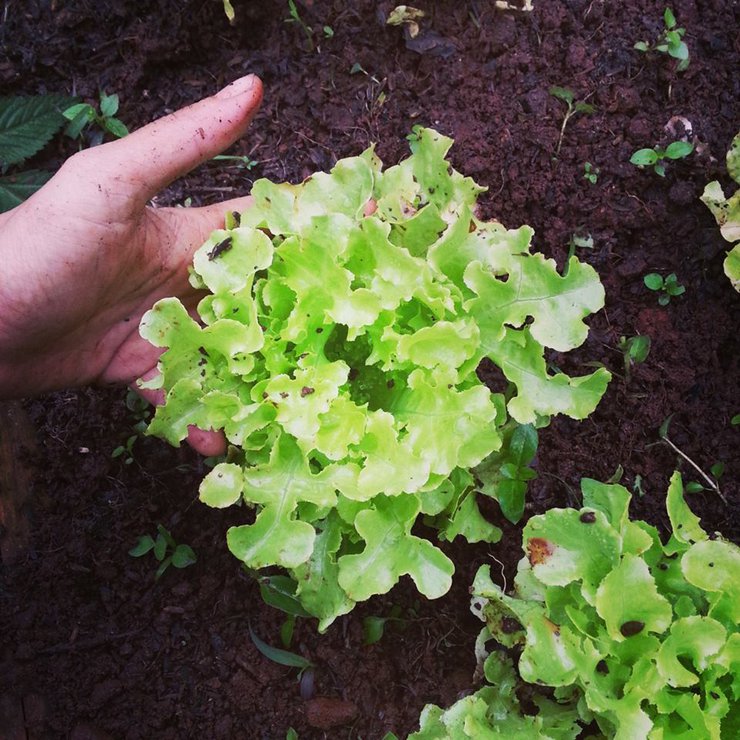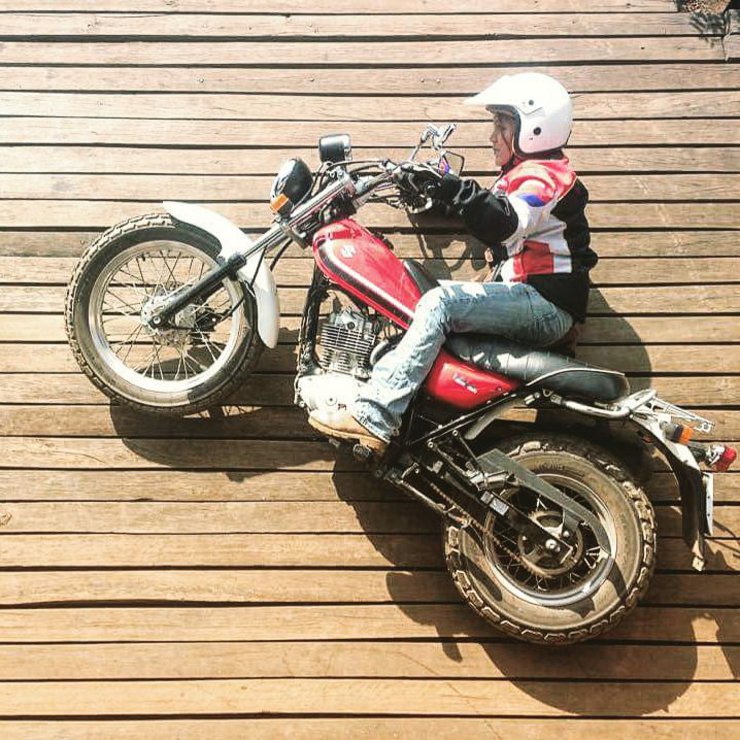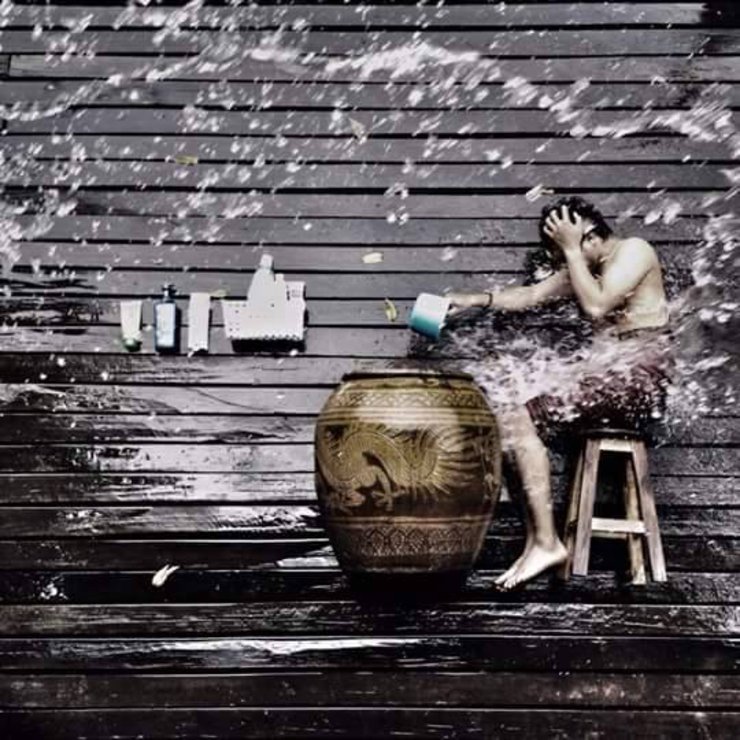In the second-largest city, skyscrapers sprout more easily than mushrooms in the metropolis. It is said that one building consumes as much electricity as a district where such consumption habits have yet to reach. As the roofs rise higher, people do not look up to admire the starlight, but instead look down to admire the dazzling spectacle of multicolored neon lights. It's ironic.
In a city that hardly sleeps, it's not difficult to find ways to relieve boredom. However, finding a place to sit and reflect on oneself is more difficult than packing a bag and saying goodbye to civilization for a while. To take a deep breath somewhere and leave behind love affairs and worries would be nice.

Fortunately, my close brother moved here and settled down, making the decision to travel here almost instantaneous. The accommodation was excellent, and breakfast was included. In this area, where electricity has yet to reach, the light of kerosene lamps illuminates the night after the sun sets. The light of fireflies twinkles in competition with the stars, and at the same time, the large stars twinkle as if they were within reach. If there is any place where the Milky Way can be seen with the naked eye, it must be here.
My brother, the owner of the house, calls this place "Budecha." Budecha means "close to the stars" in the Pga Karen language, spoken by the local people in the Kalyaniwattana district, about 111 kilometers from Chiang Mai city. It takes about 3 hours to reach the destination, traveling along the shoulder of the mountain on the Samoeng road. Some sections are dirt roads, which turn into mud during the rainy season. If you don't have a pickup truck, you risk getting stuck in the mud.

The expansive balcony of Budecha serves as a front-row seat to the celestial spectacle as the sky transforms from a muted gray to an inky blackness, providing a backdrop that accentuates the stars' brilliance, surpassing even the neon glow of the metropolis I left behind. The chirping of crickets lulls one to sleep in the stillness of the night, while the wooden bells around the necks of cows awaken one from dreams in the dead of night. Occasionally, the homeowner must rise and utter the sounds "Shhh, shoo" to drive away the herds of cattle that roam freely, preventing them from entering the fenced area where the young vegetable seedlings are being cultivated to provide sustenance and prevent vitamin deficiencies. Growing vegetables in this region is far simpler than acquiring them through monetary exchange, but it necessitates constant vigilance to safeguard them from the intrusions of various creatures as they forage for food in accordance with their natural instincts.


The morning sky awakens the chickens raised by the homeowner with its first rays, signaling the arrival of daylight. Perhaps its sole purpose is to rouse the homeowner to feed them at the start of the day. After a free breakfast of ingredients sourced from the home garden, if the homeowner is in the mood for an outing, the first stop during the rice planting season is the terraced rice fields. If it's late in the year, the cold-weather fruits are in full bloom. The villagers' strawberry fields, planted in rows that descend the mountainside, offer another picturesque scene worth capturing with a camera. The cool air discourages venturing out, and the homeowner's bookshelf beckons invitingly, whispering tales waiting to be discovered.



The final day of the visit concludes with a commemorative ritual known as "guest stuff," initiated by P'Ohm. This involves the homeowner photographing the visitor from the second floor balcony, capturing a dynamic, almost moving image that reflects the visitor's essence. The balcony serves as a chronicle of the individuals who have passed through, their stories interwoven, their presence lingering even in their absence.

The newly paved road has paved the way for electricity to reach the village, making future journeys more convenient and potentially reducing travel time. Electricity has arrived in Budecha, bringing the advantage of longer food preservation. While previously, ice purchased from the city once a week was the only source of refrigeration, some nights still see the villagers building bonfires and gazing at the stars, as they have always done. The spacious veranda continues to await the arrival of starlight and the stories of visitors.
Saowarat Pontajak
Friday, October 4, 2024 3:01 PM




